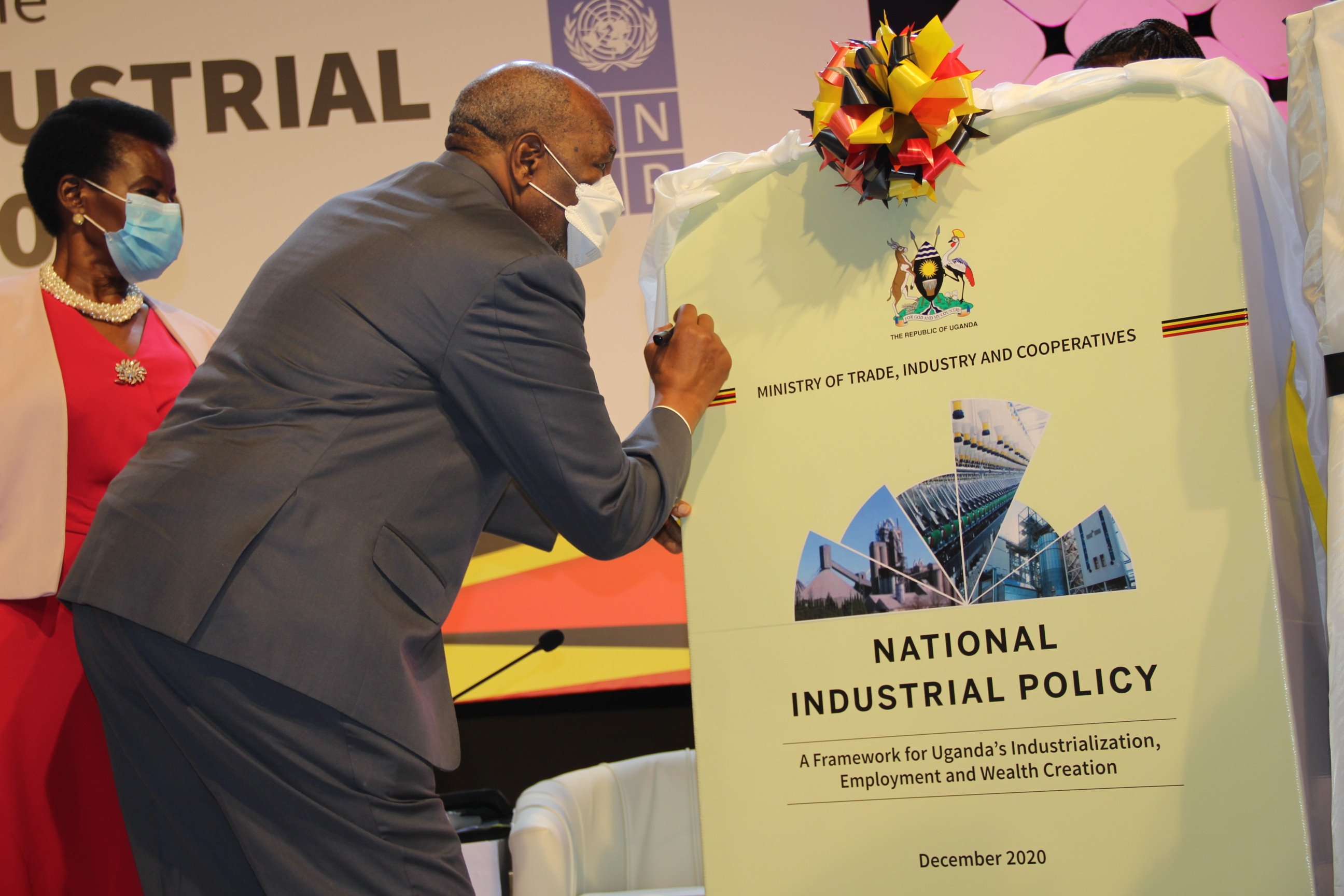Liberian VP roots for home-grown solutions

The director of Curative Services at the Ministry of Health, Dr Olaro Charles (2nd left), Liberian Vice President Jewel (in blue dress) and State minister for Trade, Industry and Cooperatives, David Bahati, visit the neonatal Intensive Care Unit at Mulago Women Specialised Hospital in Kampala on February 14, 2023. PHOTO/SYLIVIA KATUSHABE
What you need to know:
- Ms Taylor warned that Africa’s ballooning population requires the continent to start domestic production.
The Liberian Vice President, Ms Jewel Taylor, has said it is high time African countries started emphasising locally-made products as part of the wider plans to have home-grown solutions to “our problems.”
Ms Taylor noted that in a few years to come, Africa will have the highest population in the world and the continent should, therefore, begin looking at instances where things are produced domestically.
While touring around the Cipla Quality Chemicals Industries Limited in Kampala yesterday, she said Covid-19 taught African countries a lesson that they should start looking for their own solutions rather than waiting for western countries.
“I was excited that there are some products that are locally-produced as we are talking about producing for Africa and building Africa. Because if you produce in Africa, you build peace, sustainability, hope and the future of our young people,” Ms Taylor said.
“Covid-19 taught us more lessons that if we don’t have what we need on the continent, our people will die needlessly. But if they are produced [vaccines] here, it is easier to get to the source and have access at our critical moments,” she added.
Accompanied by the Minister of State for Trade, Industry and Cooperatives, Mr David Bahati, she visited other places including Kololo Independence Grounds and Mulago Women Specialised Hospital where she did some benchmarking.
Mr Bahati said Uganda is importing close to $350 million (Shs1.2 trillion) of pharmaceuticals, but the government is looking at import substitution, saying 30 companies have started manufacturing medicine and other pharmaceuticals locally.
“This is part of the President’s decision to do import substitution to make sure that whatever we are importing should be produced here, then it provides jobs for our children,’’ he said.
The chief executive officer of Cipla Quality Chemical Industries Limited, Mr Ajay Pal, said Africa is capable of solving its problems if there are increased government-to-government partnerships.
“Africa is the biggest market, if you look at the population of about 1.2 billion people, their market is there, but we just have to show that we are brothers and start to promote imports and exports from other countries,” Mr Pal said.
He said production in the country doesn’t only provide jobs to the population but also develops the country.
Mr Pal said the company produces close to 60 million drugs annually and there is 60 present utilisation in the 18 countries they export to.
At the Mulago Women Specialised Hospital, the executive director, Ms Evelyne Nabunya, said ever since the 450-bed capacity facility was opened in 2018, the number of patients has been increasing to 4,000 patients both out-patients and admissions per month.
She, however, noted that the facility is understaffed and lacks enough specialists. Ms Nabunya said the specialised facility has 343 medical workers and only 10 percent of these are specialists.
“We do have a few super specialists. We need to train more staff to be able to get services closer to our people,” Ms Nabunya said.




